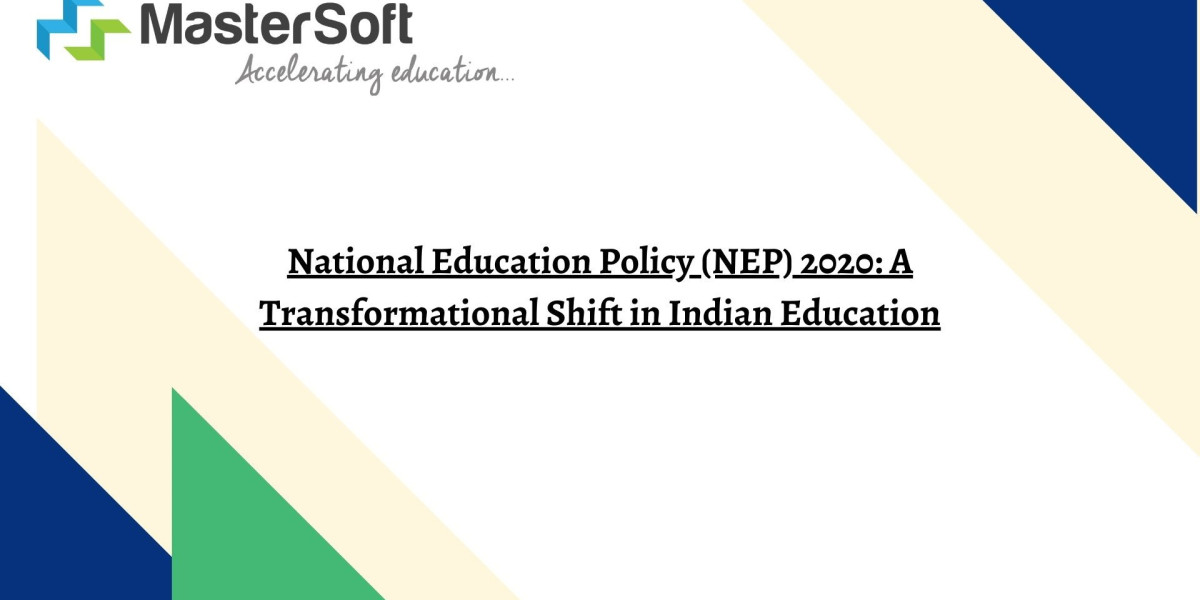In 2020, India introduced a landmark change to its educational framework with the launch of the National Education Policy NEP 2020. This comprehensive policy, the first significant overhaul in the Indian education system since 1986, aims to revamp the structure and content of education across all levels. NEP 2020 brings a holistic, flexible, and multidisciplinary approach to learning, with an emphasis on 21st-century skills, digital literacy, and fostering critical thinking.
The policy sets ambitious goals to transform India into a global knowledge superpower while ensuring equitable access to quality education for all. This blog delves into the key aspects of NEP 2020 and its potential to reshape the future of education in India.
Key Highlights of NEP 2020
NEP 2020 brings significant reforms at every stage of education, from early childhood to higher education, with a focus on inclusivity, flexibility, and a learner-centric approach. Here are some of the major highlights:
1. Holistic and Multidisciplinary Education
One of the standout features of NEP 2020 is its emphasis on multidisciplinary and holistic education. It envisions a shift from rote learning to conceptual understanding and critical thinking. By allowing students to choose subjects across disciplines—such as science, arts, and vocational streams—the policy encourages well-rounded development.
In higher education, the rigid separation between different streams will be removed, enabling students to pursue interdisciplinary studies. For instance, a student interested in both mathematics and music can now craft a curriculum that includes both. This flexibility is designed to align with global standards, preparing students for diverse careers.
2. New School Structure: 5+3+3+4 Model
NEP 2020 has restructured the schooling system into a new 5+3+3+4 format, replacing the earlier 10+2 system. This structure is aimed at providing a more tailored and effective learning experience at each stage of a child's development.
- Foundational Stage (5 years): Covering ages 3-8, including pre-primary and Grades 1-2. This stage focuses on play-based, activity-based, and discovery-based learning.
- Preparatory Stage (3 years): For ages 8-11 (Grades 3-5), it introduces students to formal schooling with a greater focus on basic literacy and numeracy, alongside a continuation of activity-based learning.
- Middle Stage (3 years): For ages 11-14 (Grades 6-8), students will engage in more subject-oriented learning with critical thinking and inquiry-based education.
- Secondary Stage (4 years): For ages 14-18 (Grades 9-12), students can specialize in their areas of interest, choosing multidisciplinary subjects, with a focus on preparing them for higher education.
3. Focus on Early Childhood Care and Education (ECCE)
Recognizing the importance of early years in a child’s cognitive and emotional development, NEP 2020 places a strong emphasis on Early Childhood Care and Education (ECCE). The policy aims to provide universal access to quality ECCE for children aged 3 to 6 by 2030, with a goal to integrate early childhood education into the school system.
The National Curricular and Pedagogical Framework for Early Childhood Care and Education (NCPFECCE) will guide the curriculum in this phase, ensuring that children develop strong foundations in numeracy, literacy, and social-emotional skills.
4. Assessment Reform: A Shift from Rote Learning to Skill-Based Learning
NEP 2020 aims to move away from high-stakes exams that encourage rote memorization. Instead, it promotes a competency-based approach to learning, emphasizing the development of key skills like critical thinking, creativity, communication, and problem-solving.
The policy introduces modular board exams, allowing students to take exams in smaller parts rather than all subjects at once. Additionally, school assessments will become more holistic, using tools like quizzes, assignments, and project-based assessments to evaluate students' progress.
The focus will also shift towards regular formative assessments rather than annual summative assessments. This continuous evaluation will provide students with real-time feedback and help teachers identify areas where students need more support.
5. Vocational Education and Skills Training
Vocational education, which was previously overlooked in the Indian education system, takes center stage in NEP 2020. The policy integrates vocational education into mainstream schooling from Grade 6 onwards, with a focus on hands-on learning and practical skills.
The policy also introduces internships for students in Grades 6-12, allowing them to gain real-world experience. By 2025, NEP aims to ensure that 50% of students have access to vocational education, making them more employable in the rapidly changing job market.
6. Higher Education Reforms
In higher education, NEP 2020 envisions multidisciplinary universities and degree programs. One of the key reforms is the introduction of a four-year undergraduate degree with multiple entry and exit options, allowing students to leave after completing a specific period with a diploma, advanced diploma, or degree. This flexible system makes it easier for students to pursue education in a way that suits their career aspirations.
The policy also proposes a single regulatory body for higher education (excluding medical and legal education), simplifying governance and ensuring better quality control. The National Testing Agency (NTA) will conduct standardized entrance exams for higher education institutions to streamline the admission process.
7. Technology and Digital Integration
With the increasing role of technology in education, NEP 2020 focuses on digital literacy and e-learning. It aims to integrate technology into all levels of education, from developing digital content to creating virtual labs for experiential learning. The policy also encourages the use of Artificial Intelligence (AI), machine learning, and coding to prepare students for a tech-driven future.
The policy emphasizes blended learning, combining traditional classroom teaching with online resources, ensuring that learning is flexible, personalized, and accessible to all.
8. Teacher Training and Development
NEP 2020 highlights the crucial role of teachers in achieving the policy’s goals. The policy calls for continuous professional development for teachers and proposes new initiatives for teacher recruitment, training, and evaluation.
Teacher education programs will undergo a transformation, with the introduction of a 4-year integrated B.Ed. degree by 2030. The policy also ensures that in-service teachers receive ongoing training to keep them updated with the latest educational tools and techniques.
9. Inclusion and Equity
NEP 2020 is committed to ensuring that all students, irrespective of their socio-economic backgrounds, have access to quality education. Special attention is given to marginalized communities, including girls, children with disabilities, and economically disadvantaged groups. The policy introduces scholarships and other initiatives to ensure equitable access to education.
Conclusion
NEP 2020 marks a bold step forward in the Indian education system, promoting inclusivity, innovation, and flexibility in learning. The policy focuses on holistic development, skill-building, and technology integration, all while preserving India’s rich cultural heritage. If implemented effectively, NEP 2020 has the potential to position India as a global leader in education, equipping students with the knowledge, skills, and mindset to thrive in the 21st century.
By bridging gaps in accessibility and ensuring the highest standards of education for all, NEP 2020 stands as a visionary roadmap for a bright future in Indian education.








